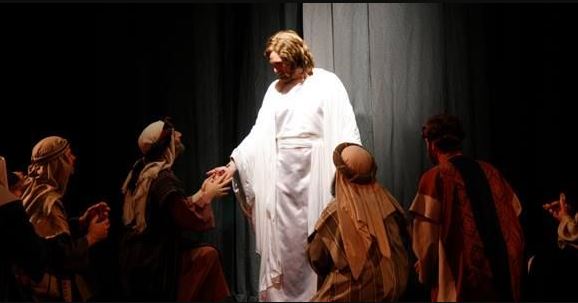Stay Close to Jesus, We Stay Close to One Another
Stay Close to Jesus,We Stay Close to One Another Taken from my Red Rock News Article (4/26/24) Rev. Dona Johnson | April 28, 2024 During Jesus’ days vines were grown all over Palestine. These vines needed a great deal of attention if they were to produce the best of fruit. Some vines needed trellises to raise them off the ground so the plant could receive more light. The ground needed to be cleared and cleaned. A young vine was not allowed to produce fruit for three years and so, each year it was severely pruned and cut back so it could conserve its life and energy. Jesus tells his disciples that he is the true vine and his Father is the gardener. And his Father cuts off every branch that does not bear fruit so the branch will bear much fruit. Then he says, “I am the vine; you are the branches. If you remain in me and I in you, you will bear much fruit; apart from me you can do nothing. If you do not remain in me, you are like a branch that is thrown away and withers; such branches are picked up, thrown into the fire and burned. If you remain in me and my words remain in you, ask whatever you wish, and it will be done for you” (John 15:1-8). The vine and branches metaphor teaches us about God’s relationship with his people and their relationship with him. God wants to be close to his people and God’s greatest desire is that his people abide in him. In other words, God’s great desire is to stay close to his people. “Abide in me,” means to continue to in a daily relationship with Jesus, characterized by trust, prayer, reading his Word and obedience. In other words, safeguard your relationship with me so I may abide in you fully. A mutually loving and committed relationship requires cooperation. All branches linked to the vine are equal. No branch is singled out in anyway as being bigger or better, and all branches are called to do the same: abide in the vine and bear fruit, and submit to being pruned. For most of us, abiding will mean to remain in constant contact with him. Abiding in Jesus will mean arranging life, arranging prayer, arranging fellowship with other believers in such a way that there is never a day when we give ourselves a chance to forget him and run the risk of becoming detached from God. One important textual point of the “vine and branches” metaphor is the vine not only represents Jesus Christ but also his Church. Those people who abide in Jesus Christ also are called to abide in the koinonia, the community of Christ and arrange their lives around it. Our current North American culture is accustomed to high rates of volunteerism and philanthropy—all very remarkable gifts. However, there is the temptation to view our membership and involvement in nonprofits and faith communities as something wholly up to us—we initiate our membership in a particular faith community and its ministry or terminate our involvement at will. Many people feel they are entitled to decide whether they belong, participate or cut ties. Thus, being a voluntary member of a faith community means joining and resigning are rather easy things in our current culture. No big deal. Many of us have become consumers of religion. We stop abiding in this congregation or that congregation because it doesn’t suit our preferences or we run into conflict and quit altogether. But Jesus conveys to us it is a big deal to resign or severe ties with the body of Christ. When we resign or quit, we do damage to God’s mission. Faith does not grow nor is it nourished in a vacuum. Together, when we abide in the life-giving vine of Jesus Christ, God gives us the spiritual capacity to abide with one another in genuine love and fellowship. Together we will always produce more fruit than if we work in a vacuum or work alone in a silo. Staying close to Jesus enables us to stay close to one another. God then multiplies our efforts! Amen.
Stay Close to Jesus, We Stay Close to One Another Read More »




